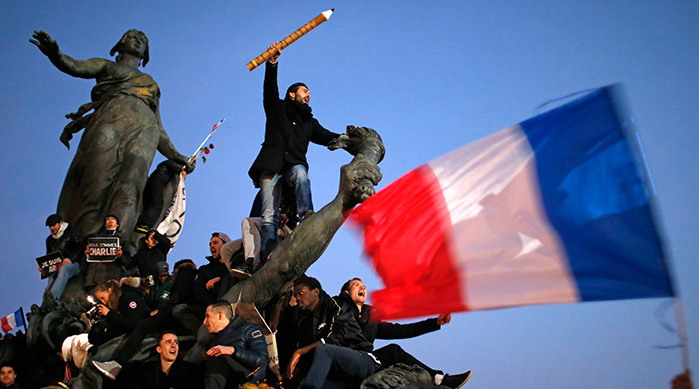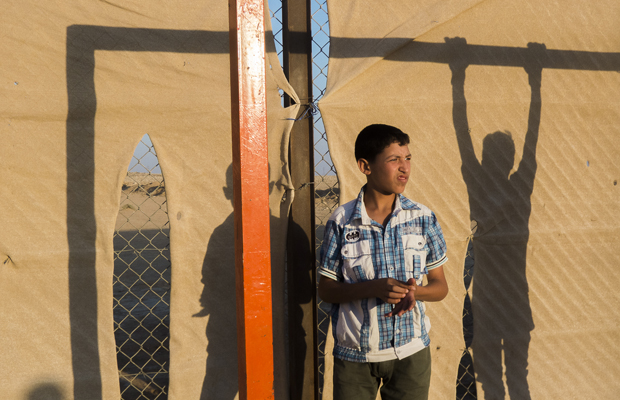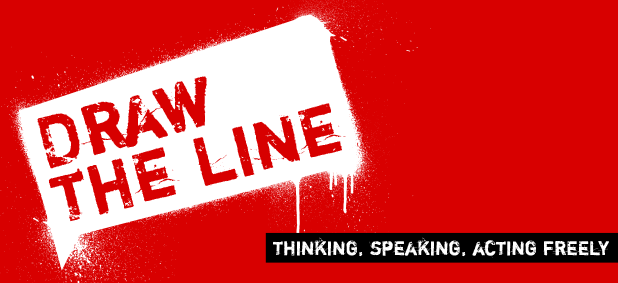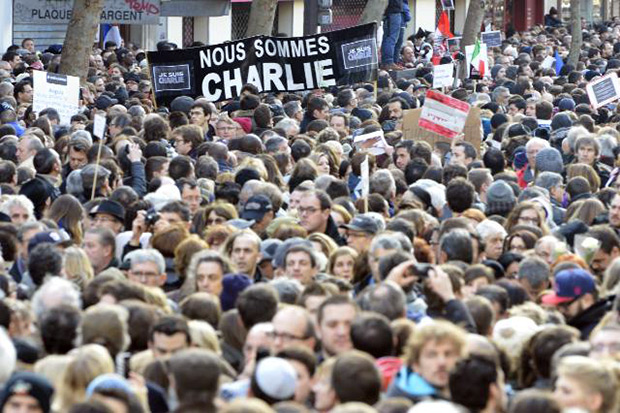4 Jun 2015 | Events

Photo: Thomson Reuters Foundation
Six months after the Charlie Hebdo attacks in Paris, journalists face more threats than ever before, from harassment to imprisonment to murder – since the beginning of the year, 50 journalists have been killed.
While some countries, like Norway, have scrapped blasphemy laws to strongly assert freedom of speech, others such as the UK are increasing state surveillance and censorship to “protect citizens from violence”. How can international law protect journalists in this challenging and unique context? Is it possible to strike a balance between security concerns and freedom of expression? Is the right to free speech an absolute one?
Join the Thomson Reuters Foundation, Reporters Without Borders and Paul Hastings LLP for a panel debate featuring:
- John Lloyd, Reuters Institute and Financial Times
- Prof Timothy Garton Ash, Oxford University
- Sylvie Kauffmann, Le Monde
- William Bourdon, Paris Bar and Association Sherpa
- Jodie Ginsberg, Index on Censorship
When: Monday 29 June, 6:00pm (followed by drinks reception & canapés)
Where: Edelman, London, SW1E 6QT (Map/directions)
Tickets: Free, book here
#FreeSpeechDebate
25 Mar 2015 | Magazine, mobile, Volume 44.01 Spring 2015

A picture from the Do You See What I See project which teaches photography skills to young refugees, Zaatari camp, Jordan (Credit: Mohamed Soleman/Do You See What I See)
In an article from the refugee voices special issue of Index on Censorship Magazine, Jason DaPonte looks at how migrants are using technology to keep in touch with distant relatives, and the security risks this can bring
“My wife changes her sim card every week,” said Omid, an Iranian refugee who hasn’t seen his wife in the seven years he has been awaiting a decision in his UK asylum case. The couple use Viber, a mobile app that allows free voice calls over the internet, but his wife remains in constant fear of surveillance. Omid is wanted by the Iranian state for political offences. He’s also a convert to Christianity and his wife fears discussing his new religion, as even members of his own family have branded him an infidel.
Refugees may be some of the most excluded people in society, but social media and new technology nevertheless play a crucial role in many of their lives. Across the globe, refugees are finding ways of using them to stay connected to families, homelands and political causes, in ways they couldn’t have a decade ago – even though it can have security implications. A number of refugees, particularly from Syria, suggested they use the free messaging mobile app, WhatsApp, because they believe the messages are secure. Whether WhatsApp messages can be hacked or intercepted is not clear, however.
Ismail Einashe, a British journalist and Africa expert, originally from Somaliland, explained another way social media is changing the refugee experience. He said how his teenage cousin, who fled Somaliland for Austria, uses Facebook for photo-sharing, to craft an image of success and happiness. But this can potentially hide the true difficulties of refugee life.
“My cousin is inspired by American hiphop. He wears baseball caps and baggy jeans – so his friends at home see the glamorous ‘other’ and they don’t see the high unemployment or poverty among refugees. It’s partly encouraging the young generation. Before, people didn’t see what life on the other side could be and now they can see it,” he told Index.
Nearly every refugee interviewed for this article said that free calls on Skype and the ability to connect with relatives for free using standard social platforms (like Facebook) is invaluable to them. But for some, sharing stories from exile goes beyond simple messaging and status updates. Some refugees use blogs and social media channels to publish content banned at home to try to fight the repression they escaped.
Moses Walusimbi fled Uganda’s anti-gay laws for The Netherlands and now runs Uganda Gay On Move – a blog, Facebook and Twitter movement that helps gay Ugandans and Africans who have fled persecution, as well as providing information for those who are left behind and remain under threat.
“When I came to Holland, I realised the more you keep quiet the more you suffer,” Walusimbi told Index. “I was very eager to know if there were any other Ugandans who are in Holland who are like me, in the same situation. And when I started these social media things, many Ugandans responded.”
His movement now has almost 9,000 followers on Facebook, which he says is the most popular platform for his content. He also has followers on Twitter and his blog. Uganda Gay On Move is providing a support network that goes beyond publishing, with many photos of meetings between its members for social and political reasons.
“Uganda Gay On Move is like a family to us now. It’s like a family because we come together, we discuss, we find solutions,” said Walusimbi. These solutions have included the group petitioning and lobbying the Dutch parliament to raise awareness about the denial of the human rights of gay Ugandans and other Africans. It also publishes information that helps asylum-seekers manage their cases and gather evidence. But Walusimbi still worries about those in Uganda who could face jail sentences simply for reading it.
“Ugandan LGBTI people – unless well-known human rights defenders – tend to use false names on Facebook. There is also a danger when people attend internet cafes and do not securely log off. There is also a danger – and I have had several direct reports of family or friends seeing the Facebook pages left open on computers in homes. Some people have been exposed this way,” Melanie Nathan, an LGBTI activist and publisher who has worked closely with African LGBTI movements, told Index. “Using Facebook could result in meetings or revealing real names through trust and then in entrapment.” Walusimbi corroborated that there are real cases where this has happened.
Blogs by and for refugees from various conflict zones are building audiences. The Medeshi Somaliland blog is one example. It was founded with a desire to keep in touch with a dispersed family and diaspora in 2007 by Mo Ali, who left Somaliland to seek asylum in the UK in 2004. His work of aggregating and creating new content quickly became more political.
“There are many websites about Somaliland and those who are publishing there have been harassed by the police. They’ve been ordered to shut down because of being critical of the government on freedom of speech and press,” Ali told Index, saying he knows of at least three websites that have been shut down and explaining why he has to publish from abroad.
Even publishing from the UK, he doesn’t feel totally safe, “I’ve received death threats via email but I published the threat online and nothing happened. I’m still alive. It was just intimidation.”
Like Uganda Gay On Move, Ali has used the blog’s following to campaign, and in 2010 and 2012 rallied more than 1,000 of his followers to lobby outside London’s Parliament for official recognition of Somaliland.
Refugees are working on their own and with professional content and software creators to find bespoke ways to tell their stories. Dadaab Stories and the related Refugee News are two of the most elegant projects that have used the power of free social media tools (particularly Tumblr and YouTube) to help refugees publish stories. In these cases, professional filmmakers and refugees worked together to create ongoing social media coverage of the refugee camp for Somalians in Kenya.
Globally available and free technology platforms are helpful, but tools, platforms and projects are now emerging that are specifically aimed at refugees to allow them to self-organise and connect digitally.
Refunite is a social network designed to connect dispersed families that have low access to technology following displacement. It allows refugees to remain anonymous to everyone other than their family members, which aids those who may not be able to register with formal institutions because they are awaiting asylum decisions or are stateless. The platform currently reaches more than 500,000 refugees and is aiming to connect 1 million during 2015. It is geared towards low-end mobile technology to ensure that nearly anyone can use it. It can even be accessed using an interactive voice response system or text-messaging for those who are illiterate or don’t have internet access.
Low-cost and low-barrier-to-entry technologies such as these are proving to be a key part of connecting refugees in crisis. The UNHCR is telling the world the story of Jordan’s Zaatari camp via Twitter (which has claimed to be the first refugee camp with an official Twitter account). Nasreddine Touaibia, a UNHCR communications associate at the camp described how WhatsApp, a free or low-cost mobile messaging system, is being used by Syrian refugees to self-organise. “Urgent messages are sent to these groups and they are reflected in the Facebook group later. It’s their own emergency broadcast network,” he told Index, describing how WhatsApp had been used to give warnings when flooding occurred at the camp.
South African technology startup Vumi is now trying to build on this trend of using low-cost messaging services to create technical products that can empower refugees to self-organise at scale. Its platform uses mass mobile messaging and low-fi browsing to enable access to civic information.
Building on its success in Libya of technically enabling Wikipedia Zero (a Wikipedia Foundation project which gives access to Wikipedia without data charges in 35 countries) and distributing voter information, the company is now in the planning stages for a project focussed on empowering refugees, in partnership with South Africa’s Lawyers for Human Rights, an NGO that deals largely with refugees in South Africa.
Various NGOs and other services are also using social media to provide platforms that help refugees re-settle. These are largely regionally based and aim to help refugees understand the legal and social contexts they are in. In the UK, the Refugee Council and Bail for Immigration Detainees provide online resources and tools that help refugees build and understand their legal cases. Migrant Voice, another UK-based organisation, provides training and tools to allow migrants (including refugees) to publish and communicate their stories.
Refugees and migrants certainly benefit from the uses of social media that everyone with internet access does; but the emerging platforms in the space are where the traditional model of solitary, isolated migrants can be disrupted. Tools specifically tailored to the needs of the excluded have the potential to create the most significant change in a networked world.
To read other articles from the issue, subscribe to the magazine in print, iPad, or phone find out more here or on iTunes, search for “Index on Censorship”.
This article and photograph is part of Across the wires, the spring 2015 issue of Index on Censorship magazine, and should not be reproduced without permission of the magazine editor. Follow the magazine on @Index_magazine
© Jason DaPonte
28 Jan 2015 | Draw the Line, mobile, Youth Board

Censorship, and the degree to which we self-censor, is becoming an increasingly difficult, yet pressing and vitally important, topic of debate amongst an ever-growing international community.
Now, in the internet age, it has never been easier to connect and communicate with so many different people from all across the world. With these wide reaching forms of communication, and various people calling for censorship at different levels, the extent to which offence is considered an acceptable and fundamental part of free speech, has been called into question.
In the wake of the Charlie Hebdo killings, some world leaders have spoken publicly against self-censorship. Australian Prime Minister Tony Abbot urged media in the country to not resort to self-censorship. Some believe that certain groups, communities or organisations should be exempt from satire, criticism or insult. Others might argue that without the right to offend, a proper line of communication can never truly be attained, that no group should be exempt, and that people have the right to offend and be offended, but not to resort to violence and extremism.
This poses the question: is causing offence, and the ability to be offended, a fundamental part of freedom of expression? And, if we remove the right to offend, does this then close down the space for free and open debate?
Tweet your thoughts to #IndexDrawtheLine to get involved in the debate.
This article was published on 28 January 2015 at indexoncensorship.org
15 Jan 2015 | Europe and Central Asia, France, News

People marched in Paris to show their unity. Photo: European Council President / Flickr
There can be few more insulting coinages than the tedious phrase “moderate Muslim”. What does it mean? Who does it benefit? In the past week, since the atrocities in Paris, we have heard it often: “moderate” Muslims must condemn terrorism. Or, alternatively, the images of Mohammed printed by Charlie Hebdo (and others in solidarity) were alienating “moderate Muslims”: “free speech fundamentalists” must reach accommodation with “moderate Muslims”.
The suggested dichotomy — that one cannot believe in free speech and in Allah, is a dangerous one. More dangerous still is the underlying implication that the “moderate Muslim” is less of a believer than the Muslims who murder, supposedly in the name of God.
It is now eight days since a murderous gang set about killing cartoonists because they had blasphemed and Jews because they were Jews. The gang was composed of men who were Muslims (it is disingenuous, as British Culture Secretary Sajid Javid pointed out, to suggest that these people were not really motivated by Islam, unless you are willing to put yourself forward as the ultimate authority on what is and isn’t Islamic).
Since then, we have gone from revulsion at the acts of the killers to an obsessive focus on the actions of their victims (or at least their victims at Charlie Hebdo: there is relatively little discussion of the slain shoppers in the kosher supermarket).
The function of all this, unwittingly perhaps, is to reinforce a power dynamic. This is about “us” and what “we” did to “them”. “Us”, roughly, being liberal democracy: “them” being European Muslims who somehow, “we” have decided, are something outside.
Worse, we have decided that there is a continuum of “Muslim anger”, at the end of which is inevitable violence. This is to imagine a homogenous bloc of believers, and to ignore the sectarian and political struggles that exist within Islam. By ignoring these struggles, we in fact junk normal Muslims (enough of the “moderate”) in with those for whom the faith is a political project and even an imperial war with the intention of “restoring the Caliphate”.
Meanwhile, “we” have the comfort of decrying our own hypocrisy.
Crying “hypocrite” is enjoyable; indeed, it’s an essential part of how the British press, and British political and social advocacy, works. Beloved satirical institutions thrive on pointing out double standards.
But tempting though this tack is, it is not an argument in itself: yes, the French state is hypocritical on free speech, lauding Charlie while arresting racist comedian Dieudonné for a Facebook post, and announcing a “crackdown” on hate speech. Of course it is rich for world leaders to march for “free speech” when practically every single government you can think of has mechanisms for censoring its citizens in one way or another. But then what? Does that somehow mitigate the horror? Does that mean we shouldn’t stand for free speech? Does that mean, even, that censorship is OK because everyone does a little bit of it?
What is achieved by this is a focus back on our own ability to control things that seem beyond us. These attacks will stop, we imagine, when we find a way to avert them. The murderous ideology motivating these attacks was created by “us”, through, say, “our” support for the 80s jihad against the Soviet occupation in Afghanistan (as Christopher Hitchens pointed out in his 2001 article Against Rationalisation, it was the CIA that “first connected the unstoppable Stinger missile to the infallible Koran”).
But the fact our governments did some things in the past that have come back to haunt us is, again, not a reason for inactivity or passivity on our own parts now. Rather we must deal with what is in front of us, while hoping not to make mistakes that will come back to us.
It is a good and honourable thing that so many people’s instinct, when confronted with aggression, is conciliation. But loathe though my conciliatory soul is to admit it, there is nothing I can concede that will appease the ideology that led to the carnage in France. To quote Hitchens once more, what the murderers and their co-thinkers hate are the parts of liberal democracy that are worth defending: “its emancipated women, its scientific inquiry, its separation of religion from the state.”
None of these things are perfectly achieved in any society, but they should be clung to as aspirations, and defended when needs be. Moreover, they must be maintained as universal, emancipatory values. To portion them off, or worse, to present them as a weapon of one part of society against another — “free speech fundamentalists” versus “moderate Muslims”, is to give succour to those whose only perception of a universal ideal is universal subjugation.
This article was posted on 14 January 2015 at indexoncensorship.org




